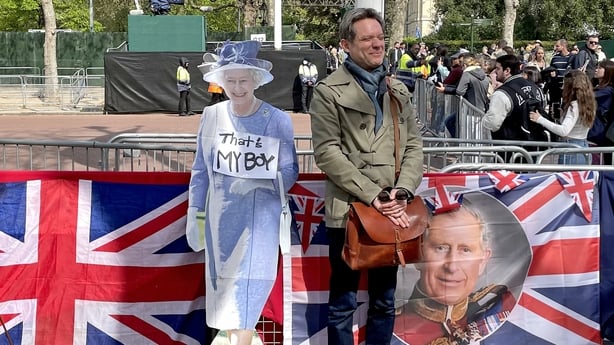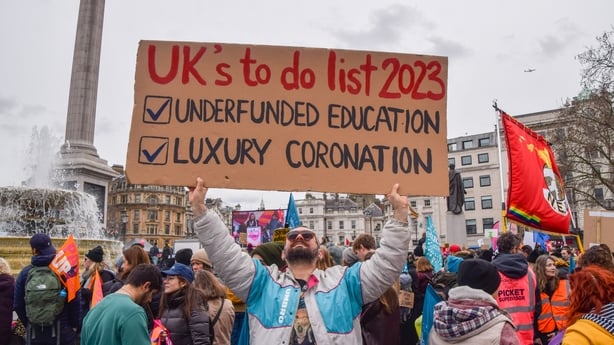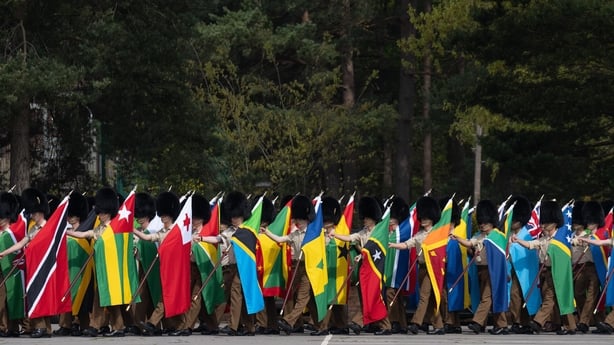Britain's first coronation in 70 years takes place tomorrow, with Charles III to be crowned king in an elaborate ceremony.
The coronation, the first of a British king since 1937, is the religious confirmation of his accession after the death of his mother, Queen Elizabeth II, last September.
The Anglican service at London's Westminster Abbey will also crown Charles's second wife Camilla as queen.
The coronation's origins date back 1,000 years. Tomorrow's ceremony will bring new elements with the involvement of women bishops and minority faith leaders as well as a more diverse and representative guest list of British society than the lords and ladies of old.

New also is the environmental theme at the ceremony, including vegan anointing oil and recycled ceremonial garb, reflecting Charles's lifelong championing of sustainability and biodiversity.
Coronation organiser the Earl Marshal, Duke of Norfolk Edward Fitzalan-Howard, called the event "a proud moment" in British history.
"During the coronation, the king will swear before God and the nation to serve our country as head of state, upholding our laws and maintaining justice for all," he told reporters this week.
Mr Fitzalan-Howard, whose family has organised state events since 1483, said the coronation was also a chance to unite Britain and the 56-nation Commonwealth grouping, which Charles also heads.
Not everyone is in the mood to celebrate, however. Republican opponents who want an elected head of state plan to protest on the day with signs declaring "Not my king".
Younger people, too, say the coronation, and the monarchy in general, leaves them cold, according to polling.

Further afield, Charles's position looks increasingly tenuous as the hereditary monarch in 14 Commonwealth countries outside the UK.
Jamaica could hold a referendum on severing ties with the monarchy as early as next year, according to Marlene Malahoo Forte, the Caribbean nation's minister for legal and constitutional affairs.
"Jamaica in Jamaican hands," she told Sky News. "Time to say goodbye!"
Australia is mulling constitutional change to give Indigenous people, once oppressed by Britain, a greater institutional "voice" in policymaking, which could presage future separation.
Charles is also facing calls to apologise for his ancestors' involvement in colonialism and the slave trade.
And South Africa has called for the return of the world's largest diamond, which was unearthed under British rule and is now part of the crown jewels to be used in the abbey tomorrow.
In the UK, political leaders will be hoping the coronation will show Britain at its best, going some way to repair the country's international standing dented by its exit from the European Union.
President of Ireland Michael D Higgins, the presidents of France and Germany, and senior EU leaders will be among the 2,300 guests attending, along with global royalty.
Coronation at a time of cost-of-living struggles
The opulent display of jewels, crowns and gilded coaches, however, sits uneasily with many British people struggling due to the rising cost of living, and widespread strike action for better pay.
"We are not living the same life. At this time people are struggling," Eden Eawit, 38, told the media in north London.
"I cook only two days a week, I eat only sandwiches. Some people are not eating at all. It is very hard," she said.
Much of the final taxpayer-funded bill, widely estimated to be upwards of £100m (€114.32), is likely to come from the huge security operation.

A Buckingham Palace spokesman said: "A national occasion like this, a great state occasion, does attract huge global interest that more than repays the expenditure that goes with it."
UKHospitality, a trade body, said the coronation weekend, which includes a public holiday on Monday, could generate £350m for the sector including pubs.
All the stops have been pulled out for the biggest display of British pomp and pageantry in decades, outstripping the queen's state funeral last September.
In all, around 7,000 military personnel, from mounted troops to marching bands, will take part in a parade rehearsed with minute precision.
Charles and Camilla will travel from Buckingham Palace in the Diamond Jubilee State Coach, then back along the same route in the older Gold State Coach after the two-hour service at the abbey.
At the palace, they will take a salute from members of the armed forces, then watch a ceremonial fly-past from the balcony with other members of the royal family.

